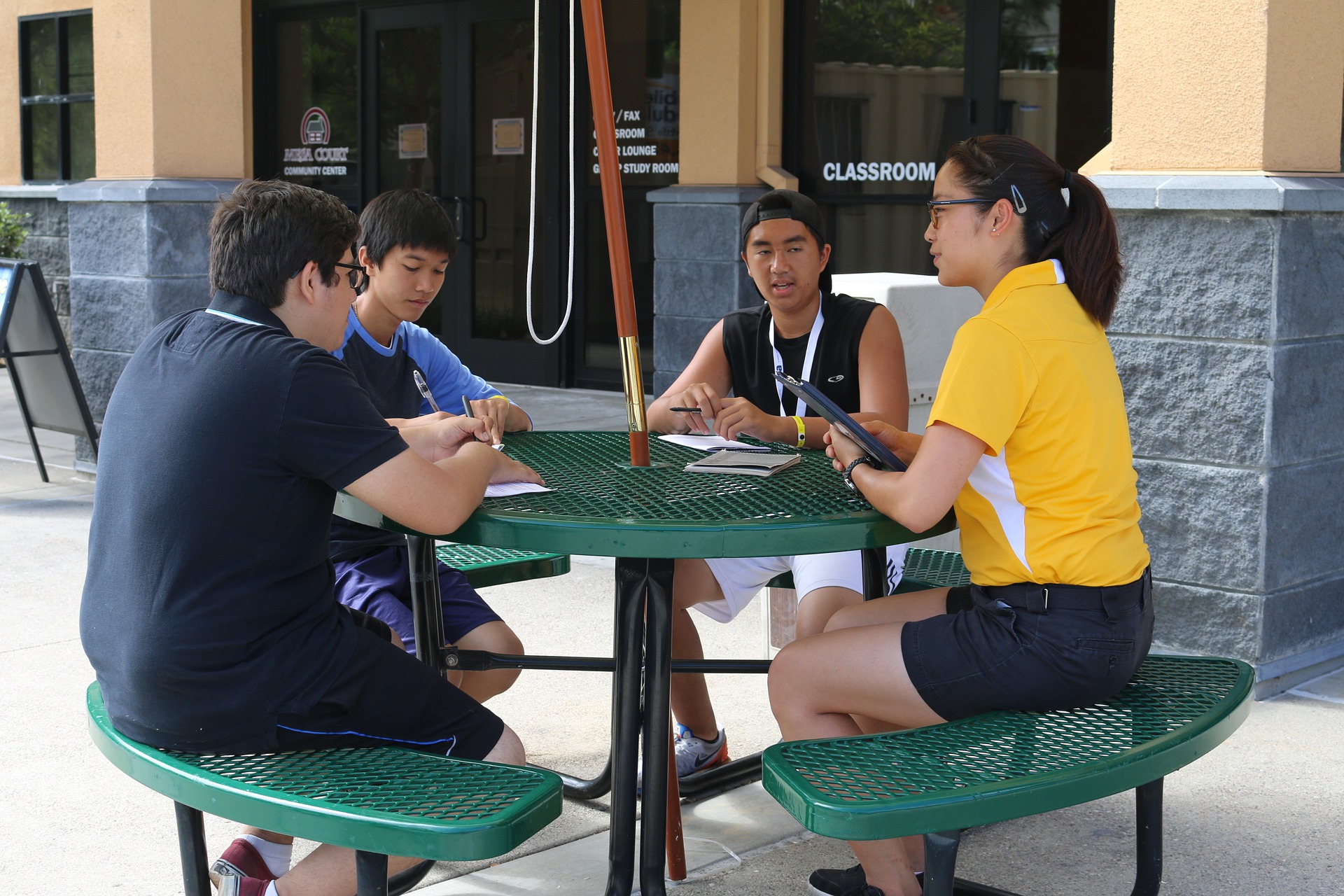Memory in the digital world
 In 2008, Nicholas Carr wrote an article for the magazine “The Atlantic” which asked a provocative question: Is Google making us stupid? As computers have become not just a significant part of our social life, but also our day at school, the use of technology has raised many questions. There has been a lot of anecdotal evidence where people claim that computers either help or hinder their learning, but up until now, there is no definitive answer to Carr’s question. The belief that people are using the Internet as a personal memory bank is referred to as the Google effect. The question is, does it really exist?
In 2008, Nicholas Carr wrote an article for the magazine “The Atlantic” which asked a provocative question: Is Google making us stupid? As computers have become not just a significant part of our social life, but also our day at school, the use of technology has raised many questions. There has been a lot of anecdotal evidence where people claim that computers either help or hinder their learning, but up until now, there is no definitive answer to Carr’s question. The belief that people are using the Internet as a personal memory bank is referred to as the Google effect. The question is, does it really exist?
A different type of memory?
So far in this unit, we have discussed short-term and long-term memory, procedural memory, episodic memory, and semantic memory. Wegner et al (1985) suggested that an additional form of memory might exist within groups of closely linked individuals. Such transactive memory systems are expected to be more than just the sum total of memories stored by the members of the group. They also include knowledge of where information can be found (i.e. who knows what) and how to access it (i.e. the best way to extract information from another member of the group). Collaboration between group members may also be essential to the retrieval of essential information.
We often see this type of memory in relationships. For example, Dad may not remember the birthdays of the family members because he knows that mom will remember them. Mom does not remember who starred in which film because she knows that her son will remember that. Because the relationships allow access to that information whenever it is needed, there is no need to commit that information to long-term memory.
ATL: Reflection
 If you are like most people, there are some things that you do not remember, but that you rely on others for recalling the information.
If you are like most people, there are some things that you do not remember, but that you rely on others for recalling the information.
What are some examples of things that you rely on your parents for remembering? Your siblings? Your friends?
Although transactive memory can be a positive way to manage our lives, can you see how it could be detrimental if you always study with the same friends for your psychology exams? What could be some of the drawbacks of reliance on this type of memory?
There are several potential examples of transactive memory in the lives of our students. This include:
Parents remembering the dates of upcoming events, teachers remembering (and reminding them) when things are due; friends remembering their PIN code for getting in the school gate; a grandparent that remembers the family history...
The danger of reliance on others for transactive memory mostly involve not having access to that person when you need that information. So, when you are taking a test and you were too reliant on friends to remember "what" was on the test, then you don't have them there to prompt memory on test day. In the case of family history, when a family member passes away who knew the family history, there is a chance that important family information will be lost forever.
Frequent use of Internet search engines and databases may represent a new type of transactive memory system that reduces reliance on our own individual memory stores. Sparrow et al, 2011 wondered if the Internet has become an enormous transactive memory store. In this model, individuals would no longer need to remember information but would simply need to remember how to search for it effectively using a search engine such as Google.
One prediction would be that we invest less effort in committing information to memory if we believe we can simply retrieve the information from an external memory store such as Google at a later date. Sparrow investigated this type of transactive memory in a simple but effective lab experiment.
Participants were asked to type 40 trivia facts into the computer. Some of the facts were expected to represent new knowledge (An ostrich’s eye is bigger than its brain) whilst other facts were more likely to be already known to the participants (The space shuttle Columbia disintegrated during re-entry over Texas in Feb. 2003).
The experiment used a 2 x 2 independent samples design – meaning that two independent variables were manipulated at two different levels. Half of the participants were told that the computer would store everything they typed for later reference while the other half were told the information would be erased. Within each of these groups, half of the participants were explicitly asked to try to remember the information. This meant that four conditions were present in the study:
Save Remember | Save not asked to remember |
Erase Remember | Erase not asked to remember |
The results showed that being asked to remember the information made no significant difference to the participants’ ability to recall the trivia facts, but there was a significant difference if the participant believed that the information would be stored in the computer.
Percentage of trivia facts recalled
Asked to remember | Not asked to remember | |
Computer will save info | 19 | 22 |
Computer will erase info | 29 | 31 |
Participants who believed they would be able to retrieve the information from the computer appear to have made far less effort to remember the information than those who knew they would not be able to do this. However, it is not really possible to measure the “level of effort” in this study – so although we can see that there is an effect on recall, we cannot be certain as to why this difference exists.
ATL: Critically thinking about research
The results of Sparrow’s research demonstrate a difference in the level of recall when people believe that the information that they are typing will be saved or not saved. It is possible that the reason for the difference in the two conditions is the result of a difference in the amount of effort used to learn the trivia facts.
How could each of the following factors perhaps be used to explain the results? How could you control to make sure that these factors don't play a role in a future replication of the study?
- Participant variability
- Confounding variables
- Demand characteristics
How could each of the following factors perhaps be used to explain the results? How could you control to make sure that these factors don't play a role in a future replication of the study?
Participant variability
One group may have a higher level of memory performance than the other group. Then the results would be due to the fact that they were better memorizers, regardless of the condition. This would be controlled by using a repeated measures design. In addition, some may type better than others. Participants that struggle to type may interact with the text more than those who can type without really thinking about the text. If more of one type of typist is within a group, this may influence the findings.
Confounding variables
These are variables that could not be controlled. This may include that some of the trivia facts may have been known to some of the participants - or that the language of some of the trivia facts may have been more complicated (and not understood) by the participants. This could be eliminated by doing a pilot test of the study to see if all trivia facts can be understood and if any of the facts are highly known by the target population to be studied.
Demand characteristics
Knowing that they are in a study, the participants may try extra hard to do well, even though this may not reflect their usual effort. They may also try really hard because they don't want to look bad. This could be controlled by letting participants know that their results will be anonymized and that the researchers will not know their personal results.
In a follow-up study, Sparrow et al tried to measure how well people recall where information can be found compared to recall of the information itself. In this experiment, participants were asked to read and type a series of trivia facts. After typing each fact participants were given the name of a specific folder that this information would be stored in. There were six folders in total but participants were not explicitly given this information or asked to recall the folder names, (‘facts’, ‘data’, ‘info’, ‘points’, ‘items’ or ‘names’)
Participants were then given ten minutes to write down as many of the statements as they could remember. They were then given a part of a statement and asked which folder it was saved in. For example, “What folder was the statement about the ostrich saved in?”
Percentage of correct answers regarding the recall of facts or location
Mean | Standard deviation | |
Recall of trivia fact | 23 | 14 |
Recall of location | 49 | 26 |
But these results do not tell us much. They are significant at p < 0.001, but since they are the average for the group, we do not know, for example, if those that recalled the most facts are also those that also recalled the most locations. So, the researchers looked at the data in a bit more depth.
Percentage of recall
Mean | Standard deviation | |
Recall both statement and folder | 17 | 16 |
Recall statement, but not the folder | 11 | 08 |
Recall folder, but not the statement | 30 | 16 |
Recalled neither statement nor folder | 38 | 24 |
This data helps us to see that participants were much more likely to remember the name of the folder (i.e. where the information could be found) than the information itself. The highest rate of recall was for the name of the folder when the information itself was forgotten, suggesting that participants were prioritizing their memory of where information could be found, exactly as expected if we are using the Internet as an external store in a transactive memory system.
This research seems to suggest that the Internet is increasingly occupying an important role in human memory, acting as an external store in a transactive memory system. Furthermore, our confidence in this external store appears to discourage us from investing effort in encoding and/or retrieval of potentially important information in our individual long-term memory stores.
As long as the Internet remains operational, we might feel confident that we can continue to rely on what is after all a colossal external memory store. However, evidence from Storm et al, (2016) suggests that our confidence in the internet leads to diminishing effort in remembering things for ourselves; the more we use Google, the less we seek to remember.
Research in psychology: Storm et al (2016)
Storm et al (2016) aimed to test the idea that successful use of Google to retrieve information made it more likely that participants would rely on Google in the future rather than recalling information from their individual memory store.
60 undergraduate volunteers took part in this lab experiment. They were randomly allocated to one of three conditions: Internet, memory or baseline. In the first phase of the procedure, participants in the Internet condition were told to use Google Search to answer a series of eight difficult general knowledge questions. Participants in the ‘memory’ condition were asked to answer the same questions, but relying entirely on their own memory to do so. Participants in the baseline condition were not asked any questions.
In the second phase, all participants were asked to answer eight easy general questions as fast as possible. All participants were given access to Google Search but without any explicit instruction to use it. The dependent variable was the proportion of questions for which participants chose to use Google Search in the second phase of the procedure.
| Internet | memory | baseline | |
The proportion of answers using Google Search | 83% | 63% | 65% |
These results clearly suggest that using Internet search engines to retrieve information makes us more likely to do so, (and therefore less likely to use our own memory) in future information recall tasks.
Both Sparrow et al and Storm designed experiments that clearly manipulate one or more independent variables and demonstrate a clear relationship between the IV and the DV. Both experiments, however, rely on trivia information. It could be argued that this compromises the ecological validity of the study – as why should we exert effort to remember trivia? If they were recalling meaningful information in their own day-to-day experience would we find the same pattern of dependence on external sources?
These studies raise important questions about the way in which the Internet is changing the way we learn and commit information to memory. However, the research in this field is relatively new and needs to rigorously tested for reliability. At this point, it is not advisable to draw any definitive conclusions; doing so may open you up to confirmation bias - that is, using insufficient evidence to confirm what you already may believe to be true, while not seeking out information that may challenge what you believe.
Links to TOK
 When we consider our knowledge systems, we often consider how much individuals know and how they know it. In the modern era, it may be so that we are reliant on the Internet for our memory system and knowledge. Consider the following three questions based on your understanding of psychology and TOK.
When we consider our knowledge systems, we often consider how much individuals know and how they know it. In the modern era, it may be so that we are reliant on the Internet for our memory system and knowledge. Consider the following three questions based on your understanding of psychology and TOK.
What are the benefits and disadvantages of such a memory system? How desirable is it to depend on an external memory source that is not based on personal experience, but rather on information over which we have no control and may not always be accurate?
Should teachers perhaps reconsider the wisdom of setting ‘internet research’ tasks as activities for their students? Instead, should students spend more time dedicated to developing their individual memory stores?
What if the Internet went down for an extended period of time or - let's say in an amazing cyber terrorism attack - was completely destroyed. What would be the effect on us as human beings? Would the end of the Internet "destroy our knowledge?" What types of "knowing" would remain?
Checking for understanding
Transactive memory can best be defined as
When we base our beliefs on a limited set of research which aligns with our own thinking, this is called
One of the concerns with Sparrow's research on the effect of Internet searches on memory formation is
What is meant when we say that Sparrow used a 2 x 2 independent samples design?
The results of Sparrow et al's (2011) follow up study showed that
Which of the following is a not a limitation of the Storm et al study on the use of Google searches?

 IB Docs (2) Team
IB Docs (2) Team
